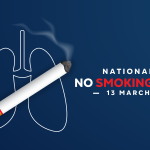Coffee, revered globally for its invigorating essence and rich palette, harbors a nuanced nexus with health, oscillating between boon and bane. This intricate interplay between coffee and well-being has engendered diverse scientific discourse, delineating the array of health outcomes tied to its consumption. Grasping the dual-edged influence of coffee is instrumental for aficionados in navigating their indulgence judiciously.
Coffee’s Boons
1. Cognitive Clarity and Vigor: The quintessential allure of coffee lies in its capacity to bolster concentration and vitality, courtesy of caffeine. This attribute renders it a favored elixir for catalyzing morning rituals and revitalizing dips in energy.
2. Disease Deterrence Potential: Emerging research indicates a correlation between habitual coffee consumption and a diminished propensity for certain chronic ailments, including Parkinson’s disease, type 2 diabetes, and select cancers such as those afflicting the liver and colon. Antioxidants prevalent in coffee are speculated to underpin these protective virtues.
3. Cardiac Well-being and Enhanced Longevity: Evidential narratives suggest a correlation between coffee aficionados and mitigated cardiac disease risk, alongside intimations of coffee’s contribution to prolonged life expectancy, weaving a narrative of longevity.
4. Metabolic Advantage: Short-term metabolic augmentation and escalated fat oxidation attributed to coffee may assist in weight regulation endeavors, although these merits tend to wane in habitual consumers.
Coffee’s Pitfalls
1. Disturbance in Sleep and Surge in Anxiety: The stimulative potency of caffeine harbors the potential to perturb sleep cycles and intensify anxiety among those predisposed, with evening consumption known to exacerbate sleep disruption.
2. Dependence Liability: Sustained caffeine consumption may cultivate a dependency, ensnaring individuals in a cycle where cessation triggers withdrawal syndromes like headaches, lethargy, and irritability.
3. Hypertension Risk: For non-regular consumers, caffeine may transiently elevate blood pressure, with ongoing debates surrounding its prolonged impact on cardiovascular health.
4. Pregnancy Precautions: Expectant mothers are advised to modulate their caffeine intake, mindful of its speculative implications on fetal development and potential miscarriage risks.
The Imperative of Moderation
Coffee’s impact on health diverges significantly across individuals, contingent on genetic predispositions, existing health conditions, and lifestyle nuances. The consensus among health pundits advocates for moderate coffee consumption (3-4 cups daily) as a generally benign practice for most, potentially yielding health dividends. Nonetheless, personal tolerance thresholds and consulting healthcare professionals for tailored advice are prudent.
Synthesis
Coffee’s dual-faceted role in health engenders both potential merits and demerits. While it may augment a health-conscious lifestyle for numerous individuals, moderation, and attunement to one’s physiological responses are paramount. By making enlightened consumption choices, coffee enthusiasts can savor their cherished brew without compromising their well-being.








